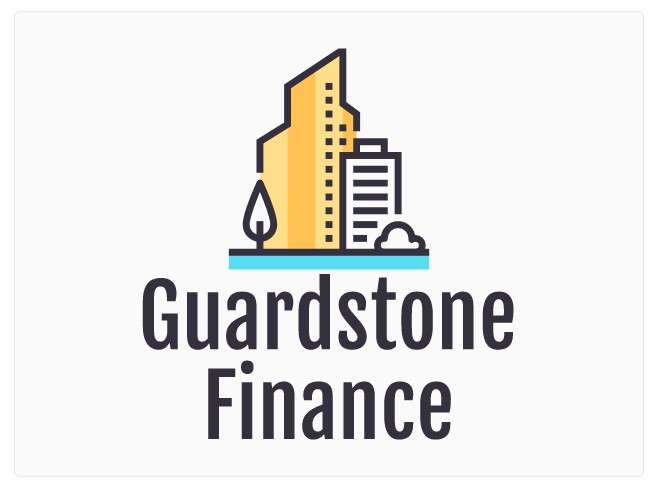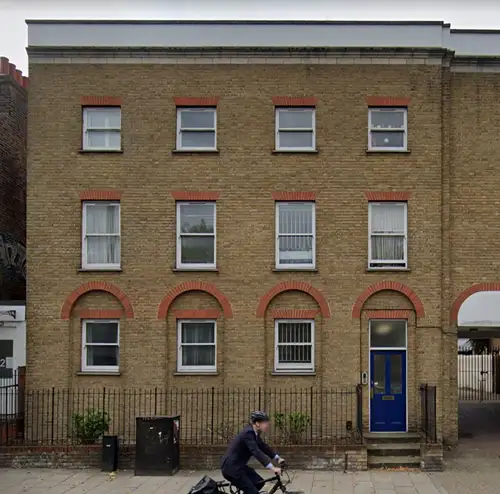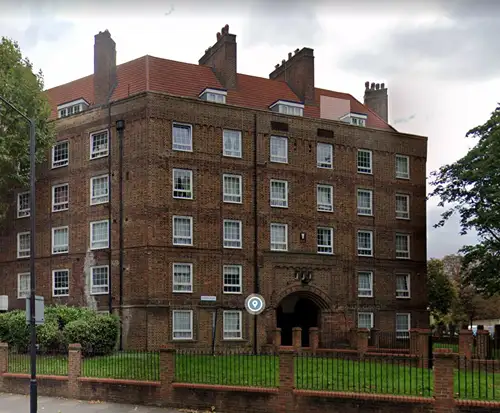
Are you looking for a remortgage for debt consolidation? With Guardstone Finance, you can get a low fixed rate and no fees. Here are the key features of this new direct lender:
- Get a fast, free desktop-based home valuation
- Loan to value up to 90%
- No lender, broker or adviser fees as Guardstone Finance is a direct lender
- 4.99% fixed for the life of the mortgage
- Ideal to pay off an existing mortgage and other debts
- No upper age limit
- One penalty-free payment holiday per year (2 weeks’ notice required)
- Fee-free further advances available subject to valuation

Can I get a mortgage with debt?

Obtaining a mortgage while carrying existing debt is feasible, yet it involves careful consideration of several factors. Lenders primarily assess your debt-to-income (DTI) ratio, which compares your total monthly debt payments to your gross monthly income.
A lower DTI ratio signifies to lenders that you have a manageable level of debt relative to your income, enhancing your eligibility for a mortgage.
It’s not merely about having debt but how well you manage it. Consistent, timely debt payments can positively impact your credit score, further strengthening your mortgage application. However, substantial debt, especially with high interest rates, can reduce the amount you’re eligible to borrow.
Lenders also consider your credit score, employment history, and down payment size. Therefore, while debt does not automatically disqualify you from obtaining a mortgage, its management and the proportion of your income it constitutes play crucial roles in the approval process.
When considering secured borrowing vs personal loan debt the most important thing to consider is the interest rate, and the overall cost of credit.
Can I remortgage to pay off debt?
In the UK, remortgaging to consolidate debt can be a strategic financial decision. It allows homeowners to use their property’s equity to pay off higher-interest debts. By doing so, you effectively combine your existing debts into your mortgage, potentially reducing your monthly outgoings due to the lower interest rates typical of mortgages compared to unsecured loans or credit cards. However, it’s vital to approach this option with caution.
Extending short-term debts over the long term of a mortgage can increase the total interest paid over time. Lenders will evaluate your loan-to-value (LTV) ratio, credit history, and affordability to ensure you can manage the increased mortgage repayments.
Seeking advice from a financial adviser is recommended to weigh the benefits against potential risks and ensure this move is in the best interest of your long-term financial health.
When thinking about secured and unsecured debt, unsecured debt could be haircut with an IVA or DMP. Secured debts must be paid.
Natwest Remortgage House To Pay Off Debts: is this possible?
Yes, NatWest offers remortgage options to pay off debts. This financial strategy allows homeowners to consolidate their debts into mortgages, potentially reducing their overall monthly payments and simplifying their finances.
NatWest considers various factors when assessing a remortgage application, including the home’s equity, the customer’s credit history, and the ability to afford the new mortgage payments.
Consolidating debts may help customers manage their financial situation. NatWest provides guidance and support to ensure customers make informed decisions that best suit their needs.
You should think hard before you consolidate debts borrowing against your home, as your home is the collateral.
Is the credit check for a Nationwide Remortgage For Debt Consolidation stringent?

Like all responsible lenders, Nationwide performs credit checks to ensure customers are offered financial products that suit their circumstances.
The credit check for a remortgage for debt consolidation is thorough, which is standard practice to ensure affordability and financial responsibility. However, “strict” does not necessarily mean inflexible. Nationwide understands that credit history is just one part of an economic story.
They consider the whole picture, including current income, financial stability, and future repayment capacity. This balanced approach aims to provide fair opportunities for customers seeking debt consolidation, ensuring that each application is evaluated with care and consideration for the individual’s unique financial situation.
Mortgage additional borrowing vs personal loans is a tough decision as if you don’t pay the repayments on your mortgage you could lose your home.
Is Lloyds Remortgage Debt Consolidation wise for all people in debt, or are some better off with an IVA or DMP?
A Lloyds remortgage for debt consolidation can be a wise choice for many in debt, particularly for those seeking to simplify multiple debt repayments into one manageable monthly payment, often with a lower interest rate.
However, it’s not a one-size-fits-all solution. Individual financial situations vary considerably; for some, an Individual Voluntary Arrangement (IVA) or a Debt Management Plan (DMP) may be more appropriate, especially if their debt level is unmanageable, they’re facing significant financial hardship, or if the cost of a remortgage would be prohibitive.
People must consider their unique circumstances and seek independent financial advice to determine the best course of action for their economic well-being.
Is HSBC Debt Consolidation accessible for someone with one ccj, two defaults and current credit card debt arrears?

HSBC approaches debt with a personalised and holistic view of an individual’s financial circumstances. For someone with a CCJ, defaults, and current credit card debt arrears, HSBC will consider the overall economic picture, including efforts to address and resolve these issues.
While these factors might pose challenges, they do not automatically disqualify someone from accessing debt repayment options. HSBC assesses each case on its merits, considering income stability, financial improvement plans, and the potential for debt securing.
The bank aims to offer inclusive and supportive solutions, helping individuals navigate towards financial stability.
An existing residential mortgage customer of HSBC may find it easier to borrow on your mortgage quickly.
Barclays Debt Consolidation Into Mortgage: is it Right for Everyone?
Barclays offers debt repayment into a mortgage as one of several financial solutions tailored to meet the needs of different customers. While it may be an appropriate choice for many, providing a streamlined approach to managing multiple debts, it’s not universally the right fit for everyone.
The suitability of incorporating debts into a mortgage with Barclays depends on individual financial situations, future goals, and the capacity to manage a potentially more significant mortgage.
This option can be a strategic move for those benefitting from lower interest rates and a single monthly payment. Barclays ensures that customers receive comprehensive advice to make informed decisions that align with their financial objectives.
What are the fees on a Santander Debt Consolidation Mortgage?
Santander is known for its transparent approach to fees associated with its financial products, including debt consolidation mortgages. Depending on the mortgage’s terms, fees might include an arrangement fee, valuation fee, and possibly an early repayment charge.
Santander strives to keep these fees competitive and affordable, clearly communicating them upfront to customers. Special offers may sometimes include reduced fees or incentives for new customers.
Santander aims to ensure customers feel informed and confident about any additional costs involved in their mortgage, which contributes to an inclusive and positive customer experience.
Do Virgin Money Debt Consolidation Mortgages have an upper age limit?

Like many contemporary lenders, Virgin Money has adapted its lending criteria to cater to a broader age range, understanding that people are working and living longer.
Therefore, they typically do not have a strict upper age limit for their debt repayment mortgage products. Instead, they assess borrowers based on their ability to repay the loan, taking into consideration income sources, which may include pensions or investments.
This approach reflects a commitment to financial inclusivity, ensuring that customers of varying ages have the opportunity to manage their finances effectively through products like debt consolidation mortgages, subject to meeting the appropriate affordability and lending criteria.
Is a Skipton Building Society Debt Consolidation Remortgage suitable for someone over 55 years old?
Skipton Building Society considers applicants of all ages for debt consolidation remortgage products, including those over 55. The building society recognises that financial needs do not diminish with age and, therefore, provides options that cater to older individuals looking to manage their finances more effectively.
For someone over 55, consolidating debts into a remortgage can offer a simplified financial structure and potentially lower overall interest rates. Skipton Building Society will evaluate the individual’s income, including pension and any other sources, to ensure the repayments are manageable within their retirement finances, making it a feasible option for those in this age group.
This type of finance could be ideal to repay debts, but be cautious because your home may be repossessed.
It if often wise to consult your existing lender if you are a low existing mortgage customer. Qualified mortgage advisers may know how your mortgage borrowing could be improved.
Is Royal Bank of Scotland Debt Consolidation With Mortgage suitable for a retired person over 60 years old?
Royal Bank of Scotland (RBS) tailors its loan and mortgage products to suit a variety of customers, including retired people and those over 60.
RBS considers retirement income and any additional financial resources when evaluating debt consolidation applications. For retired individuals, this can mean a manageable solution to combine existing debts into a single mortgage payment, potentially with lower overall interest rates.
As long as the retired person has sufficient income to cover the new mortgage payments, including pensions and any other stable income sources, RBS’s debt consolidation mortgage can be a suitable option to streamline finances during retirement.
You must keep up repayments, or your future mortgage process could be harmed.
Santander Debt Consolidation and HSBC Debt Consolidation – manage your credit commitments and maybe repay debt early
Managing multiple debts can be challenging, but solutions like Santander debt consolidation and HSBC debt consolidation can help you streamline your finances.
By consolidating your debts into one manageable payment, you can simplify your financial commitments and potentially save money. This text explores the benefits, processes, and considerations of debt consolidation with Santander and HSBC.
Understanding Debt Consolidation before going for another credit card transfer
Debt consolidation involves combining multiple debts into a single loan or mortgage. This can make managing your outgoings easier, reducing your overall interest rate, and lowering your monthly payments.
Whether you have credit cards, car loans, or other unsecured loans, consolidating these debts into one loan can simplify your finances and save you money.
Advantages of Debt Consolidation
- One monthly repayment instead of multiple payments
- Potentially lower interest rates
- Easier to manage your debt
- Fixed-rate for predictable payments
- You can improve your credit rating by clearing multiple debts
Interest Rates Comparison Table
| Lender | Interest Rate (%) |
|---|---|
| Lender 1 (from qualified mortgage advisers only) | 3.51% |
| Lender 2 | 4.26% |
| Lender 3 | 4.72% |
| Lender 4 | 5.06% |
| Lender 5 | 5.59% |
How to Apply for Debt Consolidation with Santander
Applying for a debt consolidation loan with Santander involves several steps. First, review your existing mortgage and calculate how much equity you have in your property. Then, compare different lenders to find the best rate. You can apply online, by phone, or in a branch. Ensure that you check your eligibility and understand the terms and conditions of the loan.
Seek professional advice before making any decisions. Qualified mortgage advisers can help you understand the pros and cons of debt consolidation and determine if it is the right option for you.
They can also assist with the application process and provide free confidential advice.
Important Considerations
Before applying for a debt consolidation loan, consider the following:
- Fees: Some loans may have application or processing fees.
- Interest rates: Compare rates from different lenders to ensure you get the best deal.
- Loan amount: Ensure the loan amount covers all your existing debts.
- Repayment term: Consider the loan term and how it fits your financial goals.
- Impact on credit score: Applying for a loan could affect your credit score.
- Collateral: Secured loans require an asset, such as your home, as collateral.
HSBC Debt Consolidation
HSBC debt consolidation allows you to combine multiple debts into a single loan. This can make it easier to manage your finances and reduce the total interest you pay.
By borrowing at a lower interest rate, you can cut your monthly repayments and save money in the long term. If you have existing borrowing such as credit cards, car loans, or other unsecured loans, an HSBC debt consolidation loan can help streamline your repayments.
Advantages of an HSBC Debt Consolidation Loan
- One monthly repayment instead of multiple payments
- Potentially lower interest rate
- Easier to manage your debt
- Fixed rate for predictable repayments
- Can improve your credit rating by consolidating debts
Steps to Apply for an HSBC Debt Consolidation Loan
- Assess your needs: Determine how much you need to borrow and for what purpose.
- Check eligibility: Ensure you meet the lender’s criteria for a debt consolidation loan.
- Compare options: Look at different lenders for the best rates and terms.
- Apply: Submit your application with the necessary documentation.
- Approval: Wait for the lender to approve your application.
Managing Your Debt
Whether you choose a Santander debt consolidation loan or an HSBC debt consolidation loan, managing your debt effectively is crucial. Track your payments, maintain a budget, and meet all your repayment obligations.
By taking control of your debt, you can improve your financial health and work towards a more secure future.
Alternative Options
If a debt consolidation loan is not suitable, there are other ways to manage your debt:
- Balance transfer: Transfer your existing debt to a credit card with a lower interest rate.
- Debt management plan: Work with a debt management company to create a plan to repay your debts.
- Secured loan: Consider a loan secured against an asset, such as your home or car.
- Speak to creditors: Contact your creditors to discuss alternative repayment options.
Santander debt consolidation and HSBC debt consolidation offer practical ways to manage your debt and simplify your finances. By understanding the advantages and considerations of each option, you can make an informed decision that suits your needs.
Remember to compare different lenders, check your eligibility, and be aware of the potential impact on your credit score. With careful planning and management, you can take control of your debt and work towards a more secure financial future.
Mention of Santander Debt Consolidation and HSBC Debt Consolidation.
Is Bank of Scotland Mortgage Consolidation suitable for a pensioner over 65 years old?

Bank of Scotland offers mortgage consolidation options that cater to a diverse clientele, including pensioners over 65. They understand retirees’ unique financial situations and can provide solutions that fit a pensioner’s income structure, such as stable pension returns.
The bank assesses each application individually, considering the property’s value, the amount of equity available, and the applicant’s ability to meet the repayment terms.
If the pensioner can meet the monthly repayments and other lending criteria, Bank of Scotland’s mortgage consolidation could be suitable for managing their financial obligations.
Are people over the age of 70 automatically rejected for a First Direct Mortgage Debt Consolidation?
People over 70 are not automatically rejected for a First Direct mortgage debt consolidation. First Direct considers a range of factors beyond age when assessing eligibility for a mortgage, including income, credit history, debts, and financial stability.
The bank recognises the importance of financial solutions catering to customers’ needs at different stages of life. They aim to provide options that are accessible and fair to all applicants. As long as the individual can demonstrate the ability to meet the repayment requirements, age alone would not be a barrier to securing a mortgage for debt consolidation with First Direct.
For a person over 75, is a Metro Bank Mortgage With Debt Consolidation a realistic option?

For individuals over 75, a Metro Bank mortgage with debt consolidation could be a realistic option. Metro Bank takes a flexible and inclusive approach to lending, which often means considering the broader financial picture rather than just age alone. They assess each application’s merits, considering retirement income, overall economic health, and credit history.
This approach is part of a growing trend among lenders to accommodate older borrowers, reflecting the changing demographics and financial needs. Thus, for those with stable retirement income and good financial standing, such a mortgage product could provide a viable means to manage debt efficiently.
Are Coventry Building Society Mortgages For Debt Consolidation fast to complete?
Coventry Building Society is known for its customer-centric approach and efficiency in processing mortgage applications, including those for debt consolidation. They aim to make the remortgage process as swift and seamless as possible, with a dedicated team to assist customers through each step.
They aim to ensure that the entire procedure, from the initial application to the completion, is conducted within a reasonable timeframe while maintaining thoroughness and accuracy.
Fast-tracking processes are often in place for straightforward applications, meaning that with all the necessary documentation and a clear financial profile, the turnaround for a debt consolidation mortgage can be quite prompt.
Is a Yorkshire Building Society Remortgage Debt Consolidation strictly regulated?

As with all financial institutions in the UK, the remortgage process for debt consolidation through the Yorkshire Building Society is subject to strict regulations to protect consumers.
The Financial Conduct Authority (FCA) enforces these regulations to ensure that lending practices are fair, transparent, and in the borrower’s best interest.
Yorkshire Building Society complies with these regulations by conducting thorough affordability checks and ensuring that all advice and financial products are offered to suit the customer’s circumstances.
This ensures that customers are treated fairly and that the financial products are appropriate for their debt consolidation needs.
How is the affordability assessed for a Leeds Building Society Remortgage For Debt Consolidation?
Leeds Building Society typically considers income, outgoings, and other financial commitments when assessing affordability for a debt consolidation remortgage.
After accounting for your living expenses, they calculate what you can comfortably repay each month, ensuring the remortgage is sustainable.
They also consider the stability of your income, including any regular overtime or bonuses, and your credit history to get a comprehensive picture of your financial health.
This holistic approach ensures that the lending is responsible and tailored to your circumstances, making financial solutions accessible and suitable for a wide range of individuals seeking to manage their debts.

If I have a credit score of 400, will I get automatically rejected for a Principality Building Society Remortgage House To Pay Off Debts?
A credit score of 400 is generally considered lower than most mainstream lenders look for when assessing eligibility for mortgage products. However, like many financial institutions, the Principality Building Society evaluates remortgage applications based on various factors, not just the credit score alone.
They may consider your financial situation, including income stability, employment history, current debts, and how you’ve managed your finances over time. It’s possible that with the right circumstances and mitigating factors, such as a significant improvement in your financial behaviour or having substantial equity in the property, the Society might still consider your application.
Every application is assessed individually, aiming to provide inclusive financial solutions catering to diverse needs.
If I have good credit, but my husband has very poor credit, will I get rejected for a West Bromwich Building Society Remortgage To Clear Debt?
In situations where one partner has good credit, and the other has poor credit, institutions like West Bromwich Building Society will typically look at the overall financial health of both applicants. A good credit score is certainly a positive, as it may influence the decision in your favour.
Lenders often assess joint applications on a case-by-case basis, considering combined income, debt-to-income ratio, and the ability to make repayments. A solid financial profile from one applicant can sometimes offset the other’s poor credit, mainly if there are reasonable explanations and evidence of economic stability.
It is not an automatic rejection; lenders like West Bromwich Building Society aim to provide inclusive financial solutions.

Is it wise to consider a Nottingham Building Society Remortgage To Consolidate Debt, or am I better off with a Secured Loan?
Opting for a Nottingham Building Society remortgage to consolidate debt could be a sensible choice if it aligns with your financial strategy and goals. It consolidates multiple debt payments into one potentially lower monthly payment, possibly with a lower interest rate than unsecured debts.
Conversely, a secured loan might be preferable if you require additional borrowing on top of your existing mortgage or prefer not to alter your current mortgage terms. Both options have their merits, and the decision should be based on a thorough review of your financial circumstances, future outlook, and the specific terms offered by the Nottingham Building Society.
Consulting with a financial advisor can also provide tailored insights into your situation.
I do a lot of overtime and have a generous car allowance. Will Cumberland Building Society Remortgage To Pay Off Debt accept these as part of my regular income?
Cumberland Building Society recognises the importance of a comprehensive review of an individual’s income when assessing remortgage applications to pay off debts. Overtime and car allowances, when they form a consistent and verifiable part of your income, may be considered in the affordability calculations.
The Society typically aims to assess your total income fairly to ensure that the remortgage offered is manageable and suited to your financial situation. This reflects a commitment to responsible lending and economic inclusivity.
However, it is advisable to provide evidence of this regular additional income so that it can be accounted for accurately in the remortgage assessment process.
How does affordability work out for a National Counties Building Society Remortgage To Pay Off Debts?
Affordability for a National Counties Building Society remortgage intended for paying off debts is typically calculated by considering an individual’s income, existing debts, and financial obligations.
The process aims to ensure that the new mortgage payments and other monthly expenditures are sustainable and within the borrower’s financial means. The Building Society would assess the income versus expenditure ratio to ensure sufficient funds are available for the new mortgage payments after meeting all existing commitments.

This careful consideration helps maintain financial inclusivity by providing solutions that align with borrowers’ unique financial situations, allowing them to manage their debts without overextending their finances.
If I do not have an account with Newcastle Building Society, can I still get a Newcastle Building Society Remortgage With Debt Consolidation at a reasonable rate?
Indeed, Newcastle Building Society is known for offering remortgage products catering to a broad customer base, including those who may not have an existing account.
New customers typically can obtain a remortgage with debt consolidation at a reasonable rate, subject to their financial circumstances and creditworthiness.
The Society’s commitment to financial inclusivity means they consider applications on a case-by-case basis, striving to offer competitive rates that reflect the current economic market and the individual’s financial situation. This approach allows for the potential provision of a remortgage product that consolidates debt efficiently, even for those just beginning their relationship with the Society.
Is Norwich & Peterborough Building Society Remortgaging To Pay Off Debt a good idea if it pushes the loan to value to 90%?
Choosing to remortgage with Norwich & Peterborough Building Society to pay off debt, even if it increases the loan-to-value (LTV) ratio to 90%, might be a positive step for those looking for a consolidated and potentially more manageable debt solution.
It could provide a single monthly payment at a lower interest rate than high-interest debts, such as credit cards. This strategy could be particularly beneficial for those with a stable income and confidence in maintaining their mortgage repayments.
It demonstrates a proactive approach to financial management, aiming to streamline finances and reduce the overall interest payable in the long term. However, it is essential to ensure that this financial decision aligns with one’s long-term financial goals and current economic situation.

What is the maximum LTV for a Nottingham Building Society Remortgage With Debt Consolidation?
The Nottingham Building Society designs flexible remortgage products with debt consolidation, often providing a range of Loan-to-Value (LTV) options to suit various financial circumstances.
They aim to offer LTV ratios that accommodate an excellent balance between the amount you can borrow and the equity you have in your property, potentially maximising the value you can release for debt consolidation.
The exact maximum LTV for such remortgages would be carefully calculated to ensure affordability and inclusivity, bearing in mind the importance of meeting a diverse range of customer needs and promoting financial stability.
IVA Remortgage with Natwest and RBS Debt Consolidation Loan
Managing multiple debts can be challenging, but solutions like an IVA remortgage with Natwest and an RBS debt consolidation loan can help you streamline your finances.
By consolidating your debts into one manageable payment, you can simplify your financial commitments and potentially save money. This text explores the benefits, processes, and considerations of an IVA remortgage with Natwest and an RBS debt consolidation loan.
Understanding IVA Remortgage
An IVA (Individual Voluntary Arrangement) remortgage allows you to consolidate your debts into a single mortgage. This can help you reduce monthly payments and manage your finances more effectively.
By securing your debts against your home, you can often benefit from lower interest rates than unsecured loans.
Advantages of an IVA Remortgage
- One monthly repayment instead of multiple payments
- Potentially lower interest rates
- Easier to manage your debt
- Fixed rate for predictable payments
- Can improve your credit report by clearing multiple debts
Interest Rates Comparison Table
| Lender | Interest Rate (%) |
|---|---|
| Lender 1 (mortgage to consolidate multiple payments) | 3.52% |
| Lender 2 (interest only residential mortgage) | 4.28% |
| Lender 3 (exclusively for secured consolidation) | 4.76% |
| Lender 4 (initial mortgage rate finishes in 2029) | 5.02% |
| Lender 2 (interest-only residential mortgage) | 5.58% |
How to Apply for an IVA Remortgage with Natwest
Applying for an IVA remortgage with Natwest involves several steps. First, review your existing borrowing agreement and calculate how much equity you have in your property.
Then, compare different lenders to find the best rate. You can apply online, by phone, or in a branch. Ensure that you check your eligibility and understand the terms and conditions of the loan.
Seek professional advice before making any decisions. Qualified mortgage advisers can help you understand the pros and cons of debt consolidation and determine if it is the right option for you. They can also assist with the application process and provide free confidential advice.
Important Considerations
Before applying for an IVA remortgage, consider the following:
- Fees: Some loans may have application or processing fees.
- Interest rates: Compare rates from different lenders to ensure you get the best deal.
- Loan amount: Ensure the loan amount covers all your existing debts.
- Repayment term: Consider the term of the loan and how it fits with your financial goals.
- Impact on credit score: Applying for a loan could affect your credit score.
- Collateral: Secured loans require an asset, such as your home, as collateral.
RBS Debt Consolidation Loan
An RBS debt consolidation loan allows you to combine multiple debts into a single loan. This can make it easier to manage your finances and reduce the total interest you pay.
By borrowing at a lower interest rate, you can cut your monthly repayments and save money in the long term. If you have existing borrowing such as credit cards, overdrafts, or other loans, an RBS debt consolidation loan can help streamline your repayments.
Advantages of an RBS Debt Consolidation Loan
- One monthly repayment instead of multiple payments
- Potentially lower interest rate
- Easier to manage your debt
- Fixed rate for predictable repayments
- Can improve your credit rating by consolidating debts
Steps to Apply for an RBS Debt Consolidation Loan
- Assess your needs: Determine how much you need to borrow and for what purpose.
- Check eligibility: Ensure you meet the lender’s criteria for a debt consolidation loan.
- Compare options: Look at different lenders to find the best rates and terms.
- Apply: Submit your application with the necessary documentation.
- Approval: Wait for the lender to approve your application.
Managing Your Debt
Whether you choose an IVA remortgage with Natwest or an RBS debt consolidation loan, managing your debt effectively is crucial. Track your payments, maintain a budget, and meet all your repayment obligations. By taking control of your debt, you can improve your financial health and work towards a more secure future.
Alternative Options
If an IVA remortgage or an RBS debt consolidation loan is not suitable, there are other ways to manage your debt:
- Balance transfer: Transfer your existing debt to a credit card with a lower interest rate.
- Debt management plan: Work with a debt management company to create a plan to repay your debts.
- Secured loan: Consider a loan secured against an asset, such as your home or car.
- Speak to creditors: Contact your creditors to discuss alternative repayment options.
An IVA remortgage with Natwest and an RBS debt consolidation loan offer effective ways to manage your debt and simplify your finances. By understanding the advantages and considerations of each option, you can make an informed decision that suits your needs. Remember to compare different lenders, check your eligibility, and be aware of the potential impact on your credit score. With careful planning and management, you can take control of your debt and work towards a more secure financial future.
Mention of IVA Remortgage with Natwest and RBS Debt Consolidation Loan.
Does the Progressive Building Society Remortgage To Pay Off Debts Calculator indicate the likely monthly repayment?
The Progressive Building Society’s remortgage calculator is designed to be user-friendly and clearly indicate the likely monthly repayments when considering a remortgage to pay off debts.

It considers various factors to present a comprehensive estimate that helps in planning and decision-making.
Such tools aim to ensure transparency and assist customers in understanding their financial commitments before they enter into a remortgage agreement, fostering an inclusive and supportive approach to economic management.
With a Manchester Building Society Remortgage To Pay Off Debt, are the interest rates affordable?
The interest rates offered by Manchester Building Society for a remortgage to pay off debt are designed to be competitive and accommodate a range of financial circumstances, aiming to be as affordable as possible. With a customer-focused approach, they strive to ensure that remortgaging is accessible and financially inclusive, enabling clients to manage their debts effectively.
The rates are structured to reflect current market trends while also considering individual borrowers’ situations, aligning with the ethos of building societies that prioritise member benefits and community welfare.
While each borrower’s situation is unique, the intention is always to provide a rate that facilitates financial relief and progress.
What are the alternatives to a Cambridge Building Society Remortgage To Consolidate Debt?

There are various positive and inclusive alternatives to a Cambridge Building Society remortgage for consolidating debt. One could consider a fixed-term personal loan, which offers structured repayment plans and can be tailored to suit different budgets, often without securing against a home.
Another option is a flexible overdraft or credit facility, which can be adjusted according to one’s financial needs. Peer-to-peer lending platforms present an innovative solution, connecting borrowers directly with investors.
Additionally, debt management plans and non-profit debt advice services can provide comprehensive support and practical solutions for managing and consolidating debt, helping individuals achieve financial stability while working within their means.

In the UK, debt consolidation is often considered by individuals looking to manage multiple debts. This approach can involve transferring various debts into a single loan, potentially with a lower interest rate, to simplify payments and save on interest costs and building societies like Nationwide, Coventry, Yorkshire, Skipton, Leeds, Principality, West Bromwich, Newcastle, Nottingham, Cumberland, National Counties, and Progressive offer various financial products that can be utilised for debt consolidation.

Each society offers unique offerings, terms, and conditions tailored to different financial needs and circumstances. These societies aim to provide solutions that help members manage their debts more effectively. Engaging with these building societies can offer bespoke advice and financial products designed to consolidate debts, making financial management more streamlined and less burdensome.
In the realm of UK debt consolidation, building societies such as Cambridge, Newbury, Monmouthshire, Saffron, Leek United, Furness, Darlington, Hinckley & Rugby, Suffolk, Marsden, Melton Mowbray, Market Harborough, The Scottish, Dudley, Tipton & Coseley, and Loughborough offer a range of options tailored to individual financial needs.
These institutions provide personal, tailored advice and financial products to consolidate debts, potentially lowering interest rates and simplifying monthly payments.
Each building society has unique approaches and solutions, from secured loans against property to unsecured personal loans designed to help members manage their finances more efficiently. Engaging with these societies can reveal bespoke consolidation strategies, making debt management more streamlined.
In the UK, securing a loan against your property or another valuable asset can offer a way to borrow significant amounts at lower interest rates than unsecured loans.
This secured loan method involves using your property as collateral to mitigate the lender’s risk. Various lenders offer secured loans, each with its terms, interest rates, and loan amounts, enabling borrowers to find a loan that best suits their financial situation.
Lenders such as Clearly Loans, Equifinance, Evolution Money, Loan Logics, Norton Finance, Pepper Money, Selina Finance, Spring Finance, Together Money, and United Trust Bank are among the institutions providing secured loans in the UK. The amounts available for borrowing range significantly—from as low as £1,000 to as high as £2.5 million or more, depending on the borrower’s needs and the equity public in their property.

Potential borrowers must carefully consider the implications of taking out a secured loan. The main risk involves the possible loss of the property used as collateral if repayments are not made.
Therefore, assessing one’s financial stability and ability to meet monthly payments is essential before proceeding. Borrowers should also consider the loan’s interest rate, term length, and any additional fees involved, as these factors can significantly affect the overall cost of the loan and the monthly repayment amount.
For those considering a secured loan, comparing options from various lenders is a crucial step in finding the most favourable terms.
Factors such as interest rates, loan amounts, repayment terms, and potential fees should be carefully evaluated. Some lenders may offer the ability to apply directly.
In contrast, others might require going through a broker, who can provide access to a broader range of products and assist in finding a loan that best fits the borrower’s specific needs.
In addition to secured loans, there are alternatives worth considering, such as unsecured loans, personal lines of credit, or even credit cards, depending on the amount needed and the borrower’s financial situation.
Each option has pros and cons, and choosing the right one will depend on individual circumstances, including the borrower’s credit score, the amount needed, and risk tolerance.
Before deciding on a secured loan, borrowers should explore all available options and thoroughly understand the terms and conditions of the loan they are considering. Consulting with a financial advisor can also provide valuable insights and help ensure that the decision to take out a secured loan is in the borrower’s best economic interest.
Nationwide Debt Consolidation and Remortgage for Debt Consolidation
Managing multiple debts can be stressful and overwhelming. Nationwide debt consolidation and remortgaging for debt consolidation can help you simplify your finances by combining your debts into one manageable payment.
This text explores the benefits, processes, and considerations of debt consolidation and remortgaging with Nationwide.
Understanding Debt Consolidation using property to consolidate debts
Debt consolidation involves combining multiple debts into a single loan or mortgage. This can make managing your outgoings easier, reduce your overall interest rate, and lower your monthly payments.
Whether you have credit cards, overdrafts, student loans, or other unsecured debt, consolidating these debts into one loan can simplify your finances and save you money.
Advantages of restructuring debts
- One monthly payment instead of multiple payments
- Potentially lower interest rates
- Easier to manage your debt
- Fixed rate for predictable payments
- You can improve your credit report by clearing multiple debts
Interest Rates Comparison Table to show what you could borrow
| Lender | Interest Rate (%) |
|---|---|
| Lender 1 (mortgage to consolidate debts) | 3.56% |
| Lender 2 (entire term consolidating debt mortgage) | 4.21% |
| Lender 3 ( lets you borrow money up to 90% of your homes value) | 4.79% |
| Lender 4 (uses equity in your property up to 85%) | 5.08% |
| Lender 5 (fixed future interest rates) | 5.57% |
How to Apply for Debt Consolidation with Nationwide
Applying for a debt consolidation loan or remortgage with Nationwide involves several steps. First, review your existing borrowing agreement and calculate how much equity you have in your property.
Then, compare different lenders to find the best rate. You can apply online, by phone, or in a branch. Ensure that you check your eligibility and understand the terms and conditions of the loan.
Seek professional advice before making any decisions. Qualified mortgage advisers can help you understand the pros and cons of debt consolidation and determine if it is the right option for you. They can also assist with the application process and provide free debt advice.
Important Considerations for unsecured finance help
Before applying for a debt consolidation loan or remortgage, consider the following:
- Fees: Some loans may have application or processing fees.
- Interest rates: Compare rates from different lenders to ensure you get the best deal.
- Loan amount: Ensure the loan amount covers all your existing debts.
- Repayment term: Consider the loan term and how it fits with your financial goals.
- Impact on credit score: Applying for a loan could affect your credit score.
- Collateral: Secured loans require an asset, such as your home, as collateral.
Remortgaging for Debt Consolidation
You may be eligible for a remortgage to consolidate your debts if you have a mortgage. This allows you to borrow additional money against the equity in your home.
Remortgaging can offer lower interest rates compared to unsecured loans and provide a single monthly payment. However, it is essential to note that remortgaging increases the total amount you owe on your mortgage.
Advantages of Remortgaging for Debt Consolidation – many people have interest securing debts on their home to save money
- Lower interest rates compared to unsecured loans
- One monthly payment
- Fixed rate for predictability
- It can be used for multiple purposes, including debt consolidation – a single loan that lets your simplify your monthly outgoings
Steps to Apply for a Remortgage with Nationwide with a mortgage appointment
- Assess your needs: Determine how much you need to borrow and for what purpose.
- Check eligibility: Ensure you meet the lender’s criteria for a remortgage.
- Compare options: Look at different lenders for the best rates and terms.
- Apply: Submit your application with the necessary documentation.
- Approval: Wait for the lender to approve your application.
Managing Your Debt
Whether you choose a debt consolidation loan or a remortgage, managing your debt effectively is crucial. Track your payments, maintain a budget, and ensure that you meet all your repayment obligations.
By taking control of your debt, you can improve your financial health and work towards a more secure future.
Alternative Options – you could borrow money from other sources
If a debt consolidation loan or remortgage is not suitable, there are other ways to manage your debt:
- Balance transfer: Transfer your existing debt to a credit card with a lower interest rate.
- Debt management plan: Work with a debt management company to create a plan to repay your debts.
- Secured loan: Consider a loan secured against an asset, such as your home or car.
- Speak to creditors: Contact your creditors to discuss alternative repayment options, so you can keep up repayments.
Nationwide debt consolidation and remortgaging for debt consolidation offer practical ways to manage your debt and simplify your finances. By understanding the advantages and considerations of each option, you can make an informed decision that suits your needs.
Remember to compare different lenders, check your eligibility, and be aware of the potential impact on your credit score. With careful planning and management, you can take control of your debt and work towards a more secure financial future.
The nationwide product is great for repaying debts, such as unsecured credit cards and store cards. At the time of application, you must have up to date balances on all your agreements.